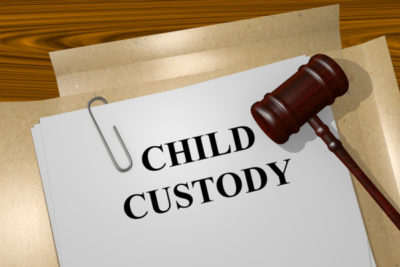Emotional Abuse in a Custody Case
 Custody cases in CA often center on one aspect: the well-being and safety of the child. This means that the family law courts will always make decisions that protect or preserve the well-being, happiness, and basic needs of the child.
Custody cases in CA often center on one aspect: the well-being and safety of the child. This means that the family law courts will always make decisions that protect or preserve the well-being, happiness, and basic needs of the child.
This means that any signs of emotional abuse can and often will impact the outcome of a family law case. While the courts won’t take any claims at face value, this will spur an investigation and deeper prodding into the issue.
Today’s post is an overview of how the family laws define emotional abuse, and offering some guidance on how one can best gather documentation and evidence that can help back up any claims presented during your custody dispute or proceedings in CA.
What Constitutes Emotional Abuse in a CA Family Law Case?
Emotional abuse can come in a variety of forms and there isn’t one precise definition. That said, here’s a list of behaviors and actions that often fall under the category of emotional abuse:
- Verbal assault and hostile language: Someone who sounds “angry” isn’t always guilty of this, but many parents do not understand the impact that yelling and screaming can have on their children. Furthermore, routinely insulting or belittling someone who is still figuring out the world is cruel and a form of abuse.
- Gaslighting and lying or deception: There’s a huge difference between white lies meant to get kids to be more responsible, and half-truths meant to further a hidden agenda.
- Rejection of the child: Parents who make their kids feel unwanted via their actions or words are committing a form of emotional abuse.
- Isolating the child: Many abusive parents try to keep their children away from others, as this can be an effective way to “insulate” them from criticism or protection/interference on behalf of other relatives and friends.
- Manipulating or exploiting a child: Parents should not take advantage of their kids in order to further their own interests. Parents who engage in this behavior are irresponsible and have crossed an unhealthy boundary.
Backing Up Claims of Emotional Abuse With Concrete Evidence
When claims of emotional abuse emerge during custody disputes, the party making the claims needs to be prepared with receipts. Divorce is an emotional affair and fake accusations do happen. The best way to strengthen your case is to give them more than a “he said / she said” scenario.
This is where records of communications such as text, phone calls, social media posts and more can come into play. Likewise, we recommend keeping a journal where one can document specific instances or incidents. Pair these up with other types of records, such as any police or medical records, formal complaints, etc, to further help the family law courts understand the seriousness of the situation.
Consult with a Family Law Attorney Today
We hope this post helped give you an idea of how claims of emotional abuse can impact custody disputes in CA. Learn more past what we have to offer in our blogs and connect with a qualified professional directly. Call us at 925-271-0999 today to book a initial consultation.
